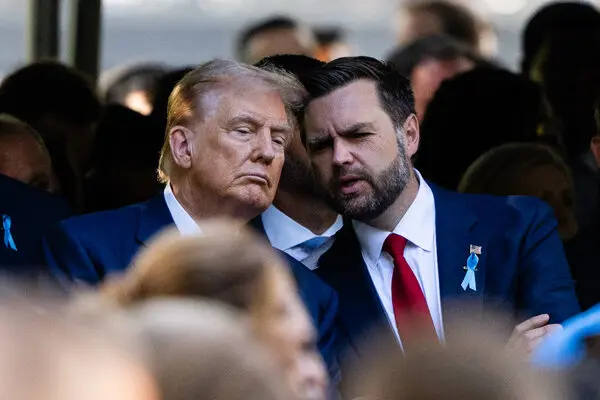reports emerged that Chinese hackers had potentially breached American telecommunications systems to access data from phones used by former President Donald Trump and his running mate, Senator JD Vance of Ohio. This alarming development raises significant national security concerns, particularly given the sensitive nature of the individuals involved.
Nature of the Breach
Investigators are currently examining the extent of the breach, focusing on what specific communications data may have been compromised. The type of information targeted is particularly valuable to foreign intelligence agencies. Details such as call logs, text message metadata, and the frequency and duration of communications could offer adversaries insights into Trump’s campaign strategies and inner circle. If the hackers managed to observe this data in real time, it would amplify its potential utility for intelligence purposes.
The Trump campaign was informed that both Trump and Vance, along with other individuals both in and out of government, had their phone numbers specifically targeted through an infiltration of Verizon’s systems. While it remains uncertain whether the hackers were able to access the content of text messages—especially those sent via unencrypted channels—the implications of even metadata being exposed are significant.
Potential Implications for National Security
The kind of data that could be harvested from phones used by a presidential candidate and his running mate could assist an adversary like China in mapping out key relationships and communications within Trump’s campaign. This information could potentially aid in targeted influence operations, enabling foreign entities to manipulate or undermine campaign efforts effectively.
The revelation comes at a critical juncture in the 2024 election cycle, where Trump’s team has also faced threats from Iranian hackers. These hackers have employed spear-phishing tactics against Trump’s associates, successfully gaining access to some campaign communications. The combination of these cyber threats has prompted heightened security measures surrounding Trump due to ongoing assassination threats.
Official Responses
While a Trump campaign spokesperson, Steven Cheung, did not confirm whether the specific phones used by Trump and Vance had been compromised, he criticized the current administration and Vice President Kamala Harris, implying that they were responsible for the vulnerabilities that allowed foreign adversaries to infiltrate the campaign.
Broader Context of Cybersecurity Threats
Western cybersecurity experts had previously identified a China-affiliated hacking group known as Salt Typhoon operating within U.S. telecommunications systems. Recent investigations revealed that this group had been actively targeting specific phone numbers, indicating a sophisticated and ongoing campaign of cyber espionage.
The implications of this breach extend beyond the immediate political landscape, suggesting far-reaching national security risks. The investigation into the hacking’s scope and potential damage is still in its early stages. Understanding whether the hackers were capable of recording phone conversations or intercepting texts hinges on the types of messaging apps used and the data’s movement through the telecommunications networks.
Moreover, a Wall Street Journal report from last month highlighted a separate cyberattack attributed to the Chinese government, which reportedly infiltrated U.S. broadband providers and may have accessed sensitive information from federal government systems, including those used in FISA court wiretap efforts.
Conclusion
The targeting of Trump and Vance’s phones underscores the ongoing and escalating threats posed by state-sponsored hacking groups, particularly from China. As investigations continue, the ramifications of this breach will likely have significant implications for the security of political communications and national security as a whole
